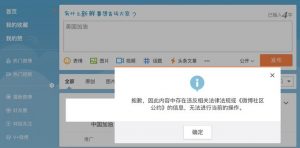Following a week of bitter back-and-forth coronavirus blaming between Beijing and Washington that further strained highly tense Sino-U.S. relations, Trump tweeted on Thursday night:
Just finished a very good conversation with President Xi of China. Discussed in great detail the CoronaVirus that is ravaging large parts of our Planet. China has been through much & has developed a strong understanding of the Virus. We are working closely together. Much respect!
— Donald J. Trump (@realDonaldTrump) March 27, 2020
The call took place as the U.S.’ official infection count surpassed China’s, and just after Xi delivered a speech to a video meeting of G-20 leaders, in which he called for international cooperation: “The virus knows no boundaries, and the pandemic is our common enemy. All countries must join hands and put up the strictest network for joint prevention and joint control.” China’s foreign ministry’s account of the conversation says Xi “stressed that since the COVID-19 outbreak began, the Chinese side has acted in an open, transparent and responsible manner,” and expressed Beijing’s willingness to support the U.S. in its fight against the virus. “It is the sincere hope of the Chinese people that the US will contain the spread of COVID-19 at an early date and reduce its impact on the American people.”
While we wait to see if the call helped to thaw the diplomatic relationship or aid the global fight against the pandemic, CDT Chinese editors noticed that Weibo users attempting to post the cheer “Let’s go, America” (美国加油) met with the disclaimer “sorry, this content contains information that violates relevant laws or the ‘Weibo Community Convention. The action cannot be implemented.”

Screenshot source: @成涛漫画
“美国加油”四个字已违反法律法规……
我微博账号已被封杀干净,哪位推友测试下? pic.twitter.com/WuoQGYSwXm
— 成涛漫画 cartoon & comic (@taocomic) March 27, 2020
@ChengTaoManHua: “Let’s go, America,” this phrase violates rules and regulations…. My Weibo account has already been wiped clean. Any other Twitterers that can test [the phrase]?
CDT Chinese editors have found other web-user tests confirming that as of March 27, 16:47 Beijing time, the posting restrictions were still in effect. Last June, days after a mass protest in Hong Kong against a proposed extradition bill broke out, the term “Let’s go, Hong Kong” (香港加油) became a sensitive search term on Weibo.
While both the Trump and Xi administrations are dealing with considerable public critique domestically for their responses to the novel coronavirus outbreak, Washington and Beijing have been trading shots aimed at highlighting how the the other’s actions are worthy of blame. In China, early cases in Wuhan were downplayed or ignored, information that turned out to be the warning bell for a global pandemic was labeled “rumor” and the doctors who shared it were punished, and when one of them died from the virus on February 7, censors worked hard to control relevant online news and discussion. Continued censorship of information about the early days of the outbreak has continued to be censored, inspiring netizens to invent new ways to preserve it. Chinese foreign ministry officials have promoted conspiracy theories blaming the U.S. for military for manufacturing the virus as China’s external propaganda apparatus has cast Beijing as a global leader in the fight against the pandemic and a beneficial donor of humanitarian foreign aid.
Meanwhile in the U.S., President Trump has earned criticism for dangerously downplaying and misinforming about an illness that has now infected over 80,000 in the U.S., surpassing China’s official but widely doubted tally. CNN reports that he has coordinated his administration to “highlight China’s alleged ‘coverup’ and subsequent disinformation campaign.” The President’s insistence on calling the novel coronavirus responsible for COVID-19 a “Chinese virus” has been widely viewed as a xenophobic dog whistle to distract from both his administration’s mismanagement of the crisis and progress towards its economic nationalist agenda.







